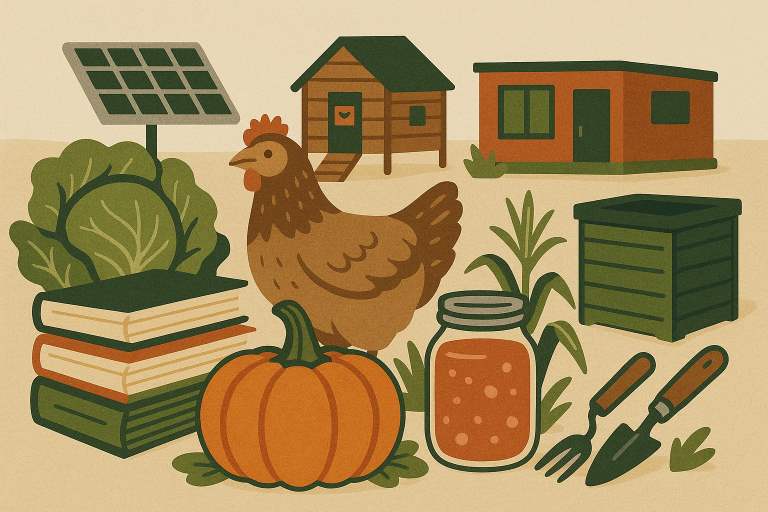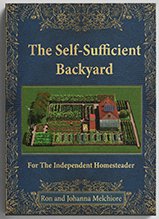5 Principles to Guide Your Sustainable Small Farm
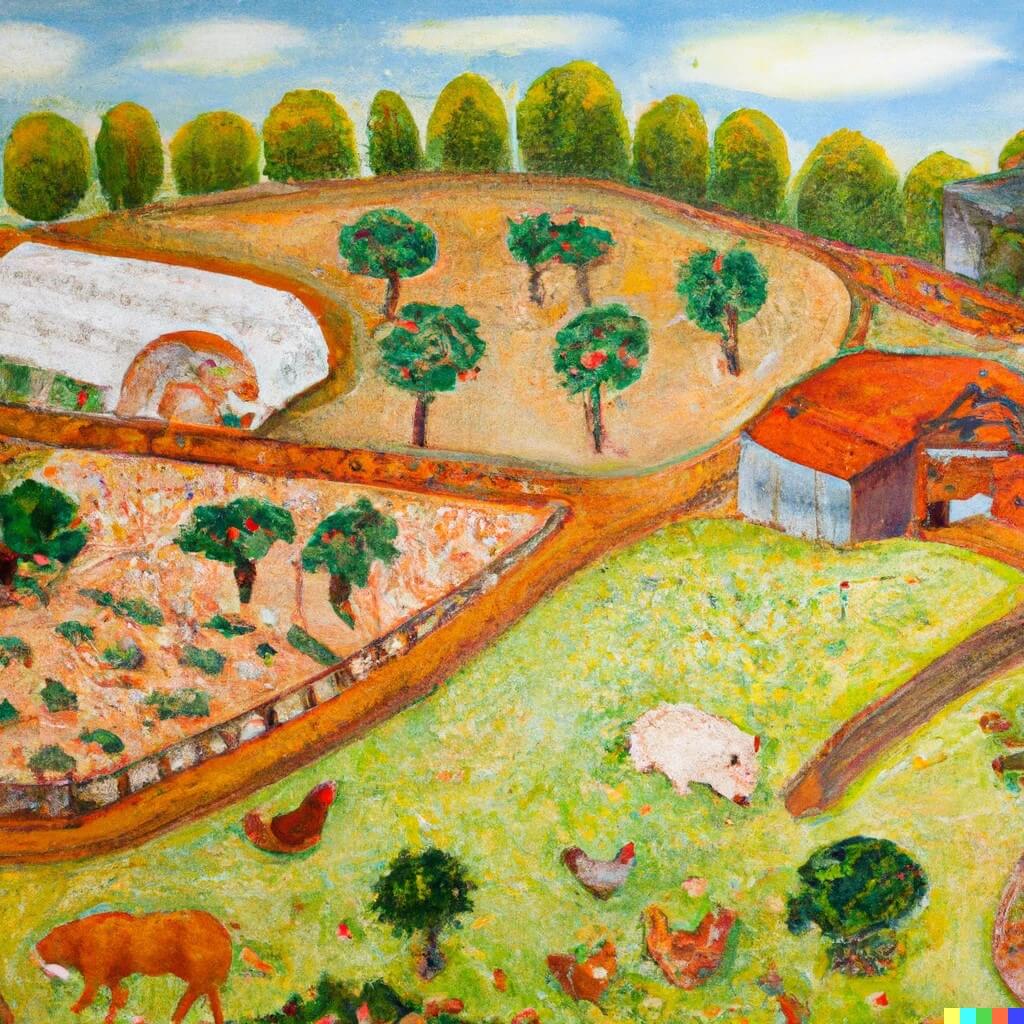 Planning your profitable, sustainable small farm Planning your profitable, sustainable small farmI keep writing these pieces because I believe the sustainable small farm plays a crucial role in ensuring food security, promoting local economies, and preserving the environment. To thrive in the long run, small farmers need to adopt sustainable practices that focus on economic viability, environmental stewardship, and social responsibility. This article explores five essential principles that can guide small farmers in creating sustainable and prosperous agricultural enterprises.
These five principles build one on the other to create a guide for priority-setting and decision-making in your small farm business. Principle 1: Marketing Comes First
There's a saying in business that 'everyone works for the marketing department'. What this means is that identifying, acquiring, and retaining customers is Job 1; this applies to small growers as much as any other enterprise. Small growers don't have the spare capacity to waste creating products that don't sell. At New Terra Farm we tried to sell everything before it was grown. Our CSA was the main sales channel to do that. Besides my basket of veggies, I took orders in advance for chickens, pork, lamb, and eggs. I also asked for a deposit on the bigger ticket items. 50% in advance let me buy day-old chicks and weaned piglets and lambs and their feed with no money out of my pocket. When I sold to schools and restaurants, I met with the chefs before the season started to find out what i could grow for them. I made sure I had their email so I could let them know what was available throughout the season. In 2017 I launched the Merrickville Mid-Week Market. Mondays and Fridays were my CSA delivery days, so the Wednesday market filled a niche for overflow produce and helped keep my veggies at optimum maturity. I collected e-mails from customers at the market, so I could tell them what would be available that week. I also offered to put aside a basket of their favorites so they could be sure to get their goodies (and I could be sure of a sale). So you should know the 'who, where, how and how much' of selling your products before you grow them. See 'finding customers' in the next section. Carefully Curated Resources For The Homesteader and Prudent Property Owner The world seems to be a little unsettled these days. I'm always looking for ways to make New Terra Farm more self-sufficient and productive. Here's a few of the best ways I've found to make self-sufficiency happen. Useful Homesteader Resources Principle 2: Your Sustainable Small Farm Has To Make A Profit
The sustainable small farm offers a viable economic opportunity within the reach of almost anyone (with the will to create it). Small farms have been created on rented land, on urban lots, and in literal back yards. But the thing they have in common is, they all need to make a profit to stay in business. That seems like an obvious statement, but you might be surprised at the number of small businesses that launch without a real plan to build a customer base and generate sufficient sales over expenses to make a profit and sustain the business. This doesn't happen by accident. You need to know that you have a product customers want and that you can produce it at a cost and sell it at a price that will put money in your pocket at the end of the season. This means money over and above paying yourself for your time and efforts. Equipment wears out or breaks down and needs to be replaced or repaired. And you will need money in hand to launch your next season. So you need some basic marketing and financial literacy to find those hungry customers and sell them your farm goodies at a sufficient margin to make a profit. You need to know how to find the customers you want to have i.e. those that believe in value over cost, so you can charge the price you need to make a profit. You need to know some basic financial ratios like net cash to gross to forecast net income and make a budget. If you need some guidance on that, my Bootstrap Boot Camp Success Plan Course Module 3 is all about your market, and Module 6 is all about your finances. Sorry, there will be math involved. 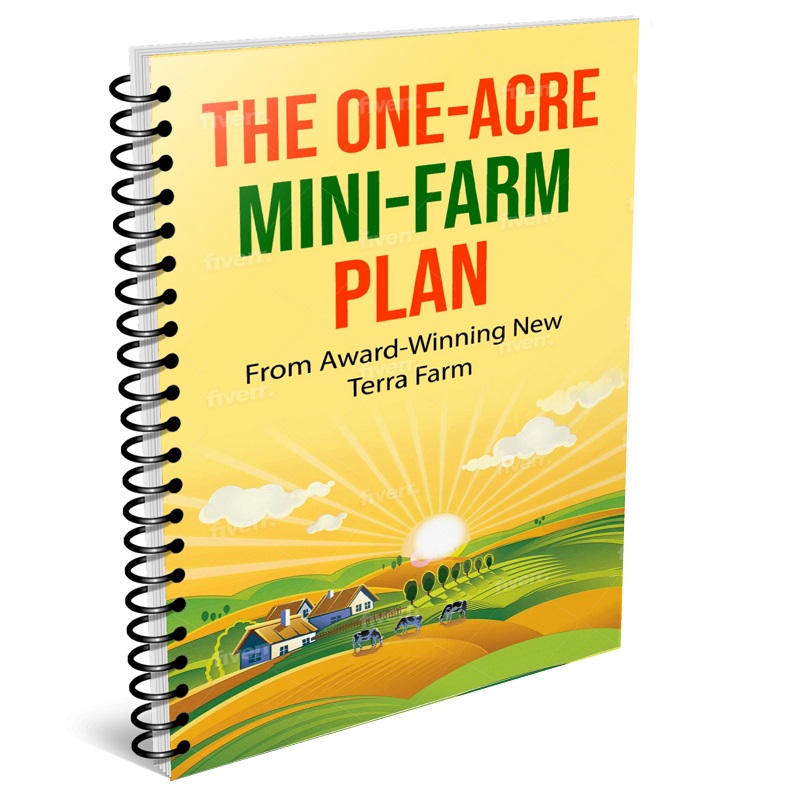 Get my FREE One-Acre Farm Plan and learn how to raise pigs, chickens and more, integrated with an organic market garden, to
make more money from your small property. Principle 3: Production Is Not The Same As Profitability
There's a joke about a couple guys that buy Christmas trees at a tree farm for $10 each, load them on their truck and drive them to town, where they sell them for $10 each. At the end of the season, they realize they haven't made any money. One says to the other. 'you know what, I think we need a bigger truck'! The point here being, doing more of the wrong thing is not the path to profit. When we first tried growing mesclun at the farm, we found we had no trouble selling it. But after the first season we figured out it was costing us more in labour for harvesting, cleaning and packaging than was worth our time. So we parked that crop, despite its popularity. A couple years later, we found a better, more efficient way to grow mesclun, and it rejoined the CSA garden lineup. You can read about that and growing 9 more crops efficiently and profitably in my book 'Grow the Top Ten Most Profitable Vegetables'. To recap, you need to know the input costs and yields of your crops to make sure you can grow it at a profit. Which brings me to the next principle, make data-driven decisions. Principle 4: Make Data-Driven Decisions
Here's something I used to tell my consulting clients back in the day: You can't manage something unless you understand it; you can't understand it unless you measure it. Data-drive decision-making is essential to the financial success and sustainability of your operations. Collecting and using data extends to more than just crop yields; by analyzing data effectively, you can optimize your resources, minimize risks, and
identify opportunities for growth. (I covered that pretty well here) Principle 5: Employ Systems Thinking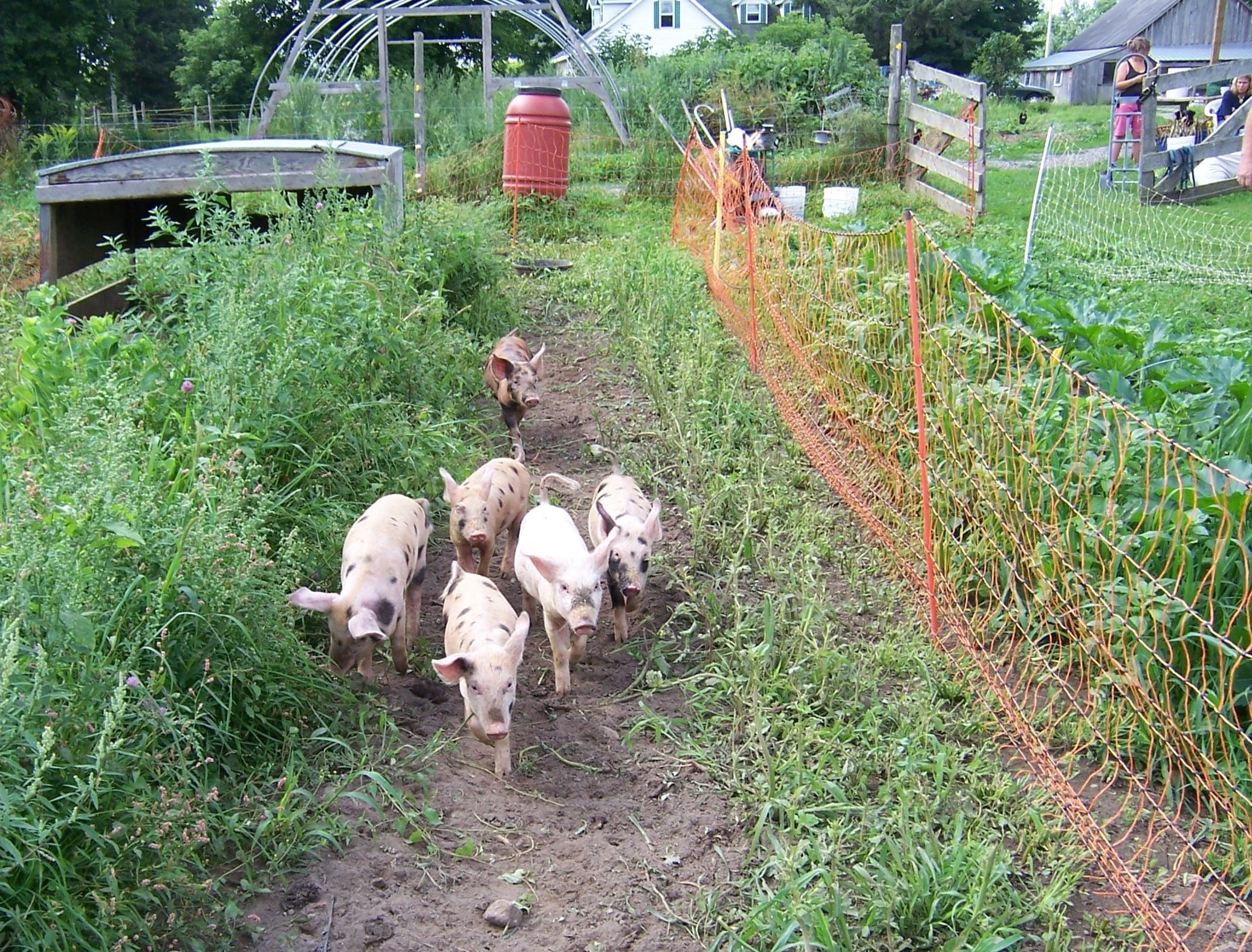 Besides giving us delicious pastured pork, our piggies work at garden prep and cleanup Besides giving us delicious pastured pork, our piggies work at garden prep and cleanupYour sustainable small farm is an ecosystem. To maintain that ecosystem over the long term, farmers need to adopt systems thinking, an approach that considers the interconnections and dependencies on your small property. Systems thinking begins with a whole-farm approach to planning. Instead of operating the farm as a collection of discrete components, farmers should seek to understand and take advantage of the relationships and interactions between various elements such as crops, livestock, soil health, water resources, and biodiversity. New Terra Farm uses rotational grazing, cover cropping, integrated livestock and garden and orchard production, low-energy-input season extension techniques, passive and preventative pest control measures, maintaining 'wild' strips in our garden to encourage pollinators, efficient watering systems and cultivation techniques like stale bed planting and precision seeding to reduce labour and energy input. We didn't undertake these things at random. We understand the connections between these components, and we can demonstrate the benefit of employing them to make our farm more sustainable both environmentally and economically. Here's a good starting point to learn more about planning and operating your sustainable small farm. If you would rather build stuff than buy stuff, this is for youI didn't write this one, but it's an excellent resource for the homesteader or small property owner anyway! The Self-Sufficient Backyard has literally hundreds of plans and practical tools and techniques for the serious homesteader.Written by a couple who have actually done the work. From growing food, to medicinal herbs, solar electricity, root cellaring, growing small livestock, and selling select produce as a side hustle, plus many more money-saving and money-making ideas, this book is an encyclopedia of growing and building knowledge. A must-have in your homestead library. I only write about topics I have personal experience with. The authors of The Self-Sufficient Backyard have done the same. Highly recommended! Speaking of 'The Sustainable Small Farm'...
FYI I'm also a speaker on topics related to small rural business. If you want me to speak at your organization, contact me through my Speaker's Page.
|
Got questions to ask, stories to tell?
Share your organic market gardening question, or comment, or story.
Recent Articles
-
1 Acre Farm Ideas: Profitable Micro-Niche Farming That Works
Feb 18, 26 08:56 AM
Discover proven 1 acre farm ideas that actually make money. Learn how to find micro-niches, set prices, and build a profitable small farm business fast. -
New Terra Farm market gardening book shows you success step-by-step
Feb 17, 26 05:10 AM
Start-up, market and manage a successful organic market garden with my Bootstrap Market Gardening Book -
Farm training for the new or wannabe farmer
Jan 02, 26 10:38 AM
Practical farm training from award-winning New Terra Farm
